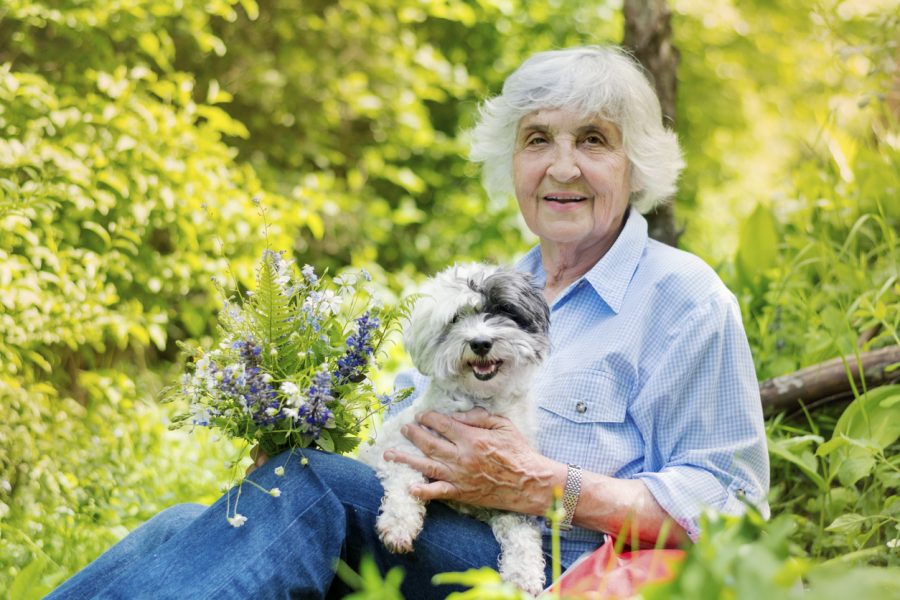When someone you love is living with dementia, it can be painful to watch them pull away from the world. Words may become harder to find. Conversations may bring confusion instead of connection. But animals don’t need explanations. A calm presence, soft fur, and gentle touch can bring comfort when so many other things feel out of reach.
Pets have a way of meeting people where they are. Stroking a cat’s back or feeling the gentle weight of a dog’s head on a lap can offer grounding and reassurance. These small moments can reduce agitation, spark joy, and help your loved one feel connected to something safe and familiar.
Why Pet Ownership Isn’t Always Safe
Despite these benefits, full-time pet ownership is difficult for someone living with dementia. Your loved one may forget to feed the pet, leave doors open, or become frustrated by the animal’s behavior. They may not recognize signs that the animal is sick or uncomfortable. Even if they were once a devoted pet owner, dementia can make it difficult — and sometimes dangerous — to care for a live animal.
If your loved one lives alone, bringing a new pet into the home can create more stress than comfort. Instead, there are other ways to introduce the calming effects of animal companionship without putting anyone at risk.
Comfort Without the Responsibility
One option is to arrange for short animal-assisted visits. These visits are led by trained handlers and therapy animals and are structured to support people with cognitive decline. A visit from a calm dog or cat can bring a sense of warmth and ease, especially when the animal is already familiar from prior visits. These interactions may help reduce anxiety, encourage conversation, or simply provide a comforting presence.
Even if you don’t have access to a formal therapy animal program, a friend or neighbor with a gentle pet may be able to visit. These visits should stay short — no more than 20 or 30 minutes at first — and the animal should be calm, easygoing, and accustomed to different people and environments. Visits work best when they happen on a predictable schedule and when the pet has a quiet, stable energy. What matters isn’t the length of time spent with the animal, but the feeling of comfort it brings.
Pets in the Family Home
If your loved one lives with you and your household includes a pet, it’s important to introduce that animal thoughtfully. Begin with supervised visits in calm settings. Speak in simple, clear language: “This is Bella. She likes to rest near the couch.” Don’t correct your loved one if they forget the pet’s name or confuse past memories with the present. Focus on their comfort, not their accuracy.
Observe how your loved one responds to the animal. If they appear agitated or uncomfortable, offer reassurance and allow the pet to retreat. Not every person with dementia enjoys being around animals, and preferences may change over time. Keep routines simple, and don’t expect them to remember or manage them on their own.
When a Live Pet Isn’t an Option
There are many reasons why a live animal might not be suitable. Your loved one may live in a memory care community, share a home with someone who has allergies, or simply feels uncomfortable around animals. In these cases, robotic pets can offer a surprisingly powerful alternative. These lifelike animals respond to touch, make soothing sounds, and often bring joy, especially for people in later stages of dementia. They require no maintenance but still provide a sense of connection and comfort.
Many caregivers report that robotic pets calm restlessness, ease nighttime anxiety, and help their loved one feel less alone. While they can’t replace a real animal, a robotic pet can still meet their emotional needs in gentle, reassuring ways.
A Thoughtful Path to Connection
Bringing animals into the dementia care experience is about filling the heart with comfort, recognition, and a sense of companionship. Whether through a robotic pet, a visiting animal, or a family dog that curls up at your loved one’s feet, these interactions can restore moments of peace and presence. And in the landscape of dementia care, those moments are magical and meaningful.
If you need dementia caregiver support, please join my dementia support group or schedule your 30-minute consultation.
Connect with Tami
Get information, guidance, and support delivered to your inbox each month.

